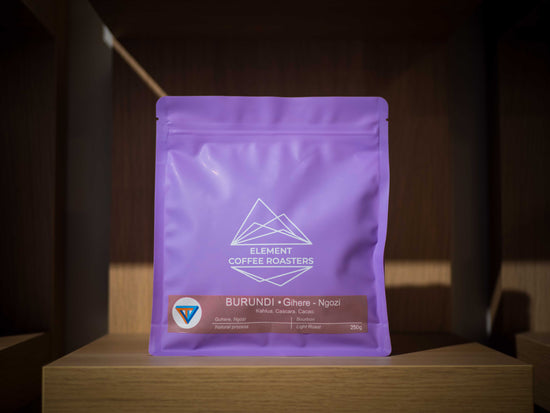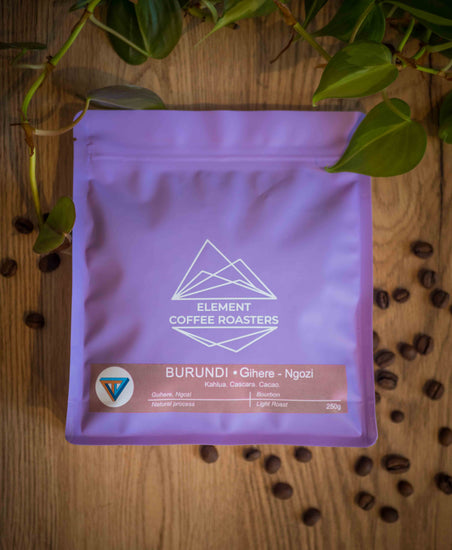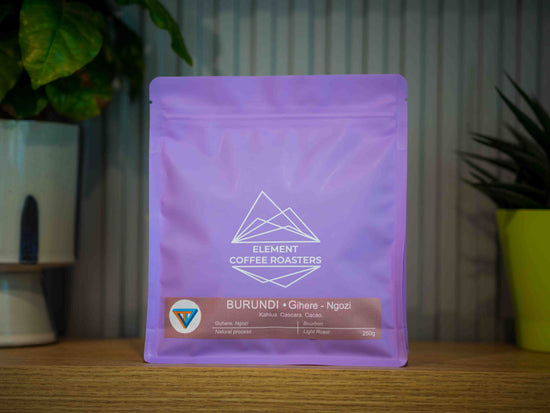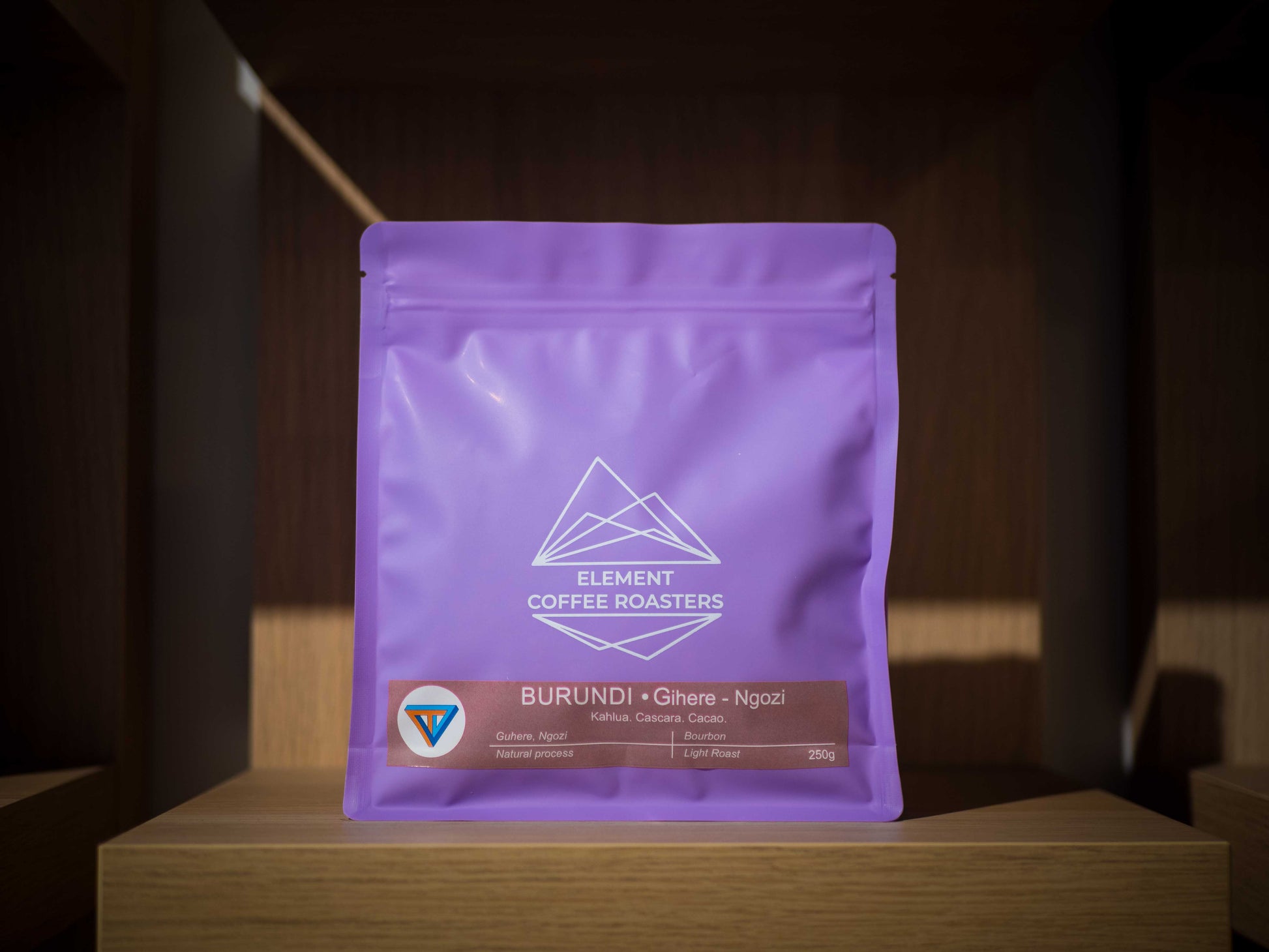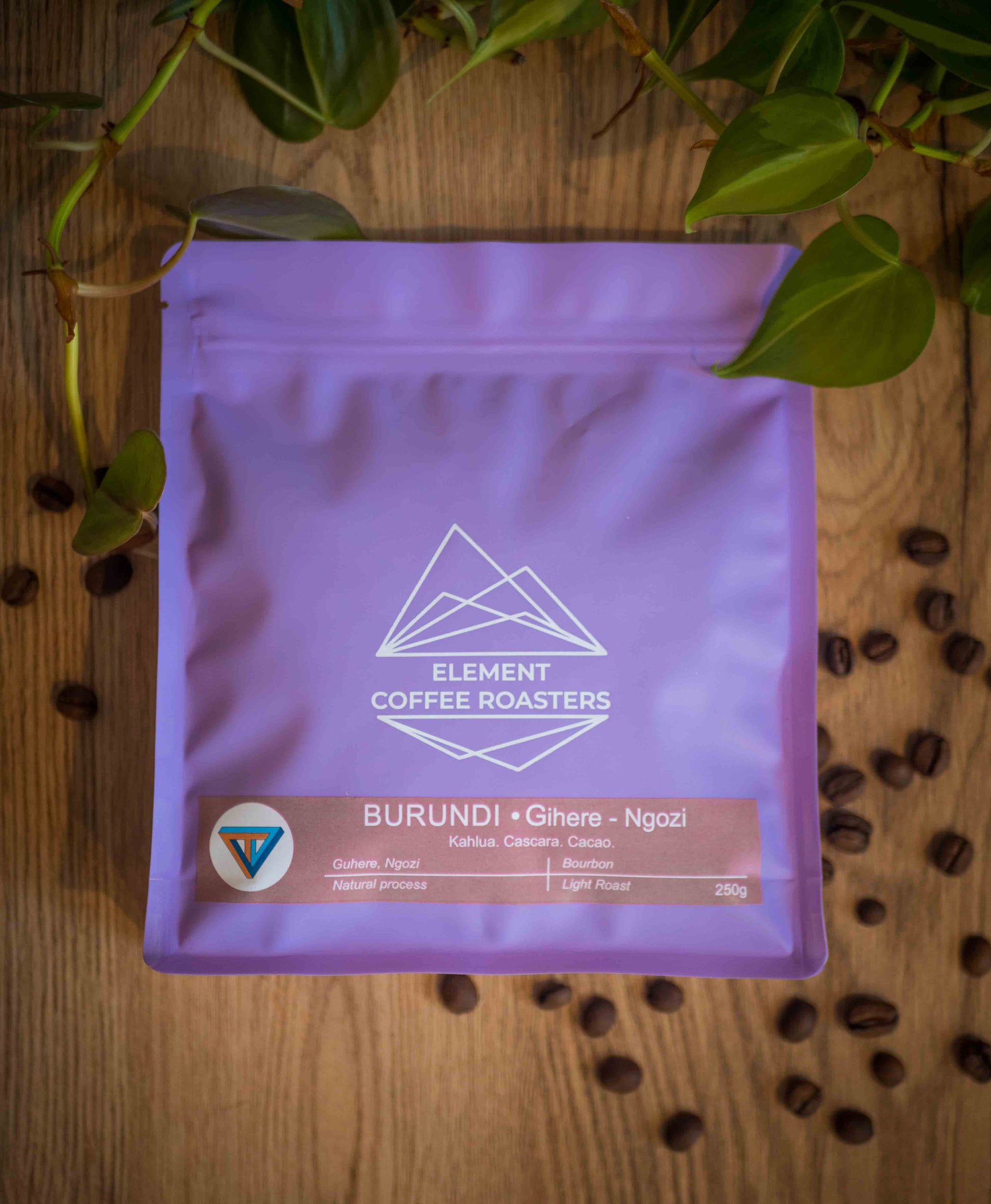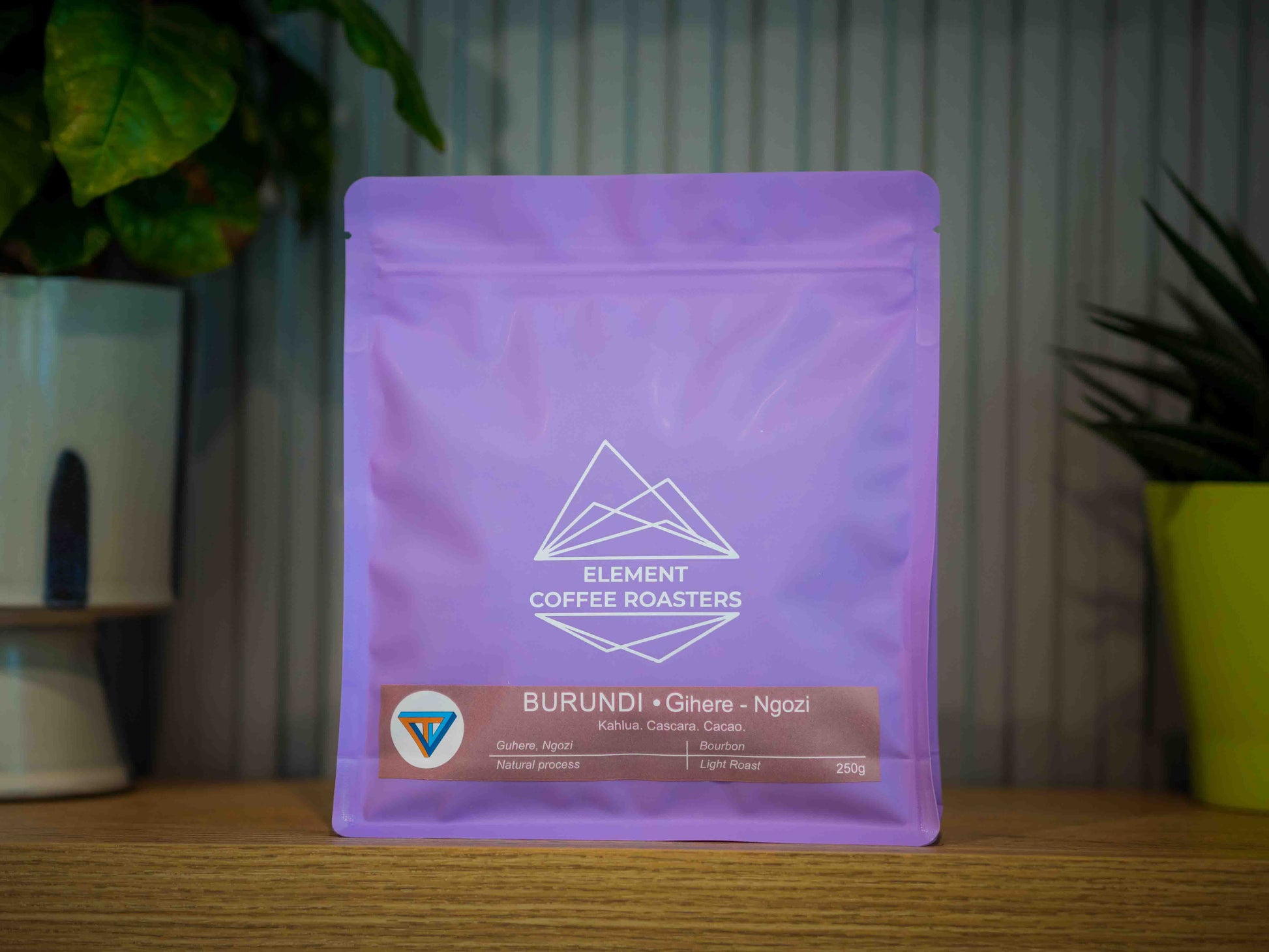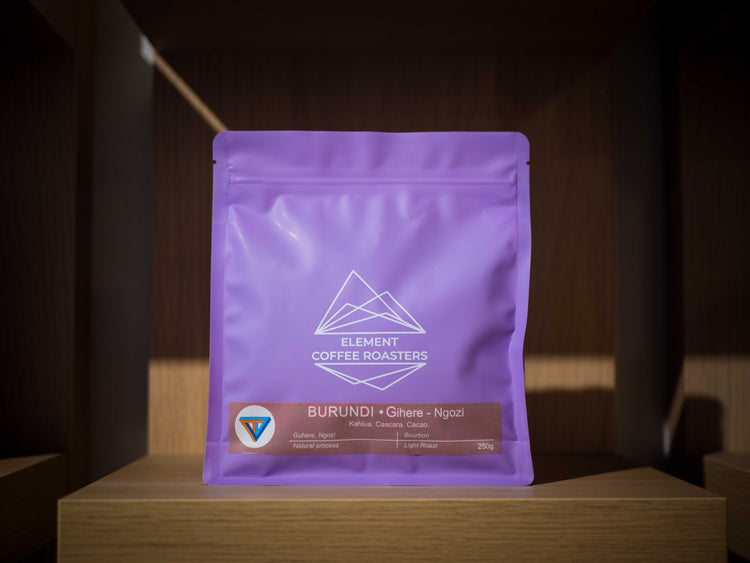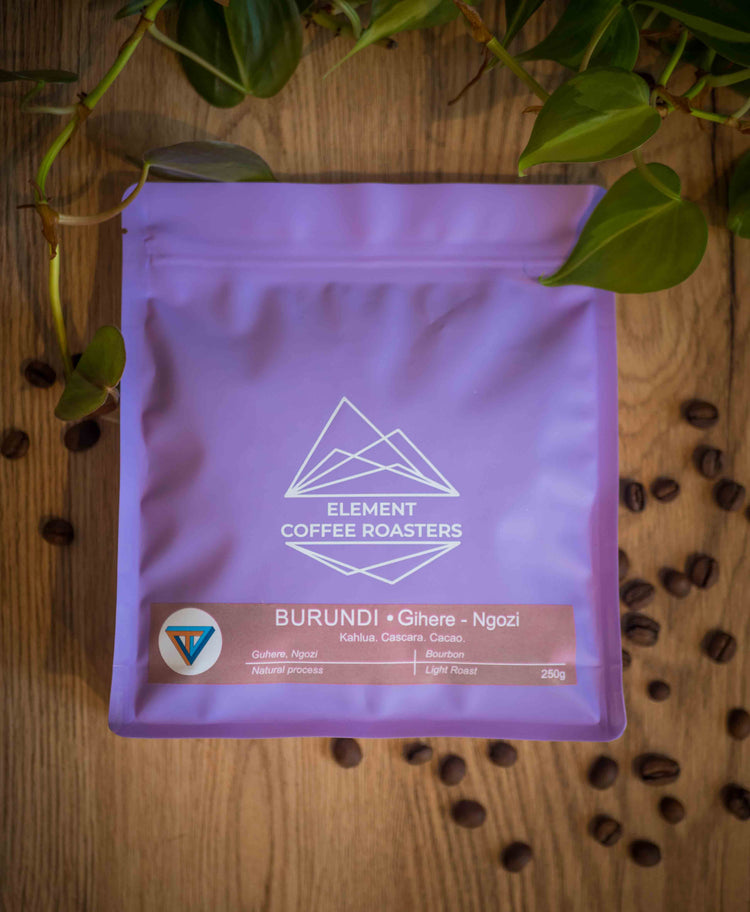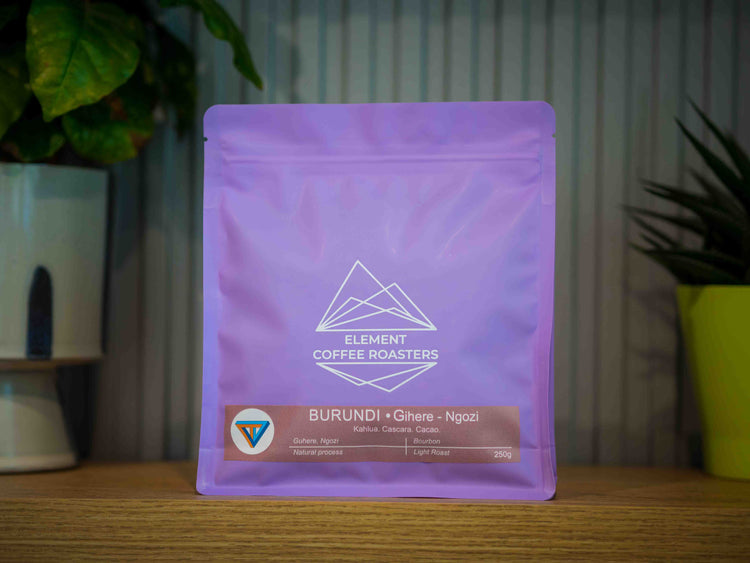More about Ethiopia Guji Hambela
Description
More
Less
Gihere is a centralized coffee processing station situated in the Ngozi region of Burundi. The station services over 1600 small farmers, most of whom own less than 250 coffee trees. The cherries of the coffee are gathered by hand, then are processed via sorting, washing and drying on over 200 raised beds. After the coffee has passed drying it is transported to the capital Gitega for further dry processing.
The station was established in 1984 and today can process up to 20 000 bags of coffee in total. Thanks to the built infrastructure the local farmers have gained access to education, investments and better living conditions, while producing high-quality coffee with clear crisp tasting profiles.
Country and Region Heirloom Ethiopian Varieties
More
Less
Process: Natural
More
Less
Variety: Heirloom Ethiopian Varieties
More
Less
Description
Gihere is a centralized coffee processing station situated in the Ngozi region of Burundi. The station services over 1600 small farmers, most of whom own less than 250 coffee trees. The cherries of the coffee are gathered by hand, then are processed via sorting, washing and drying on over 200 raised beds. After the coffee has passed drying it is transported to the capital Gitega for further dry processing.
The station was established in 1984 and today can process up to 20 000 bags of coffee in total. Thanks to the built infrastructure the local farmers have gained access to education, investments and better living conditions, while producing high-quality coffee with clear crisp tasting profiles.
Country and Region Heirloom Ethiopian Varieties
Process: Natural
Variety: Heirloom Ethiopian Varieties
You May Also Like
More about us on social media







